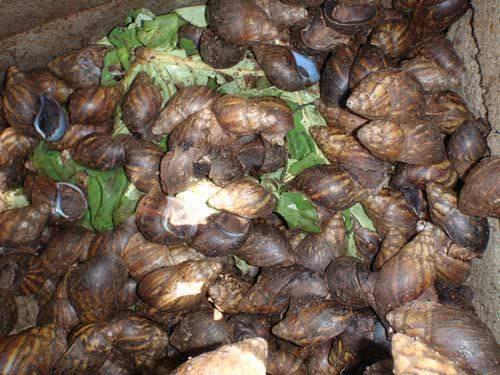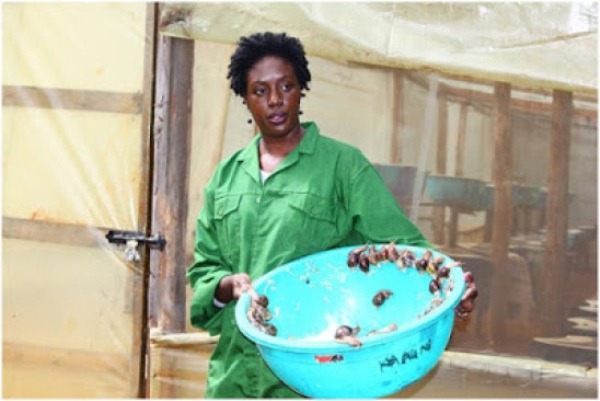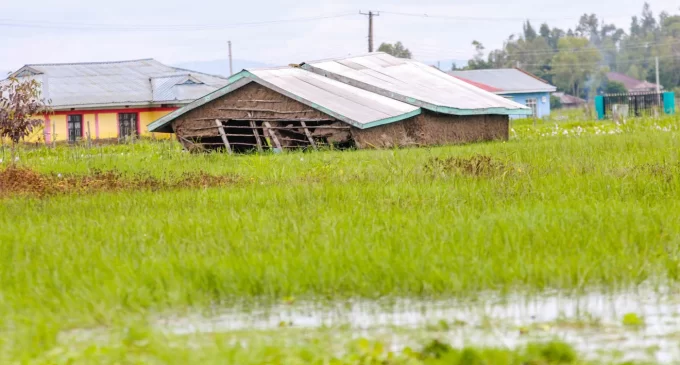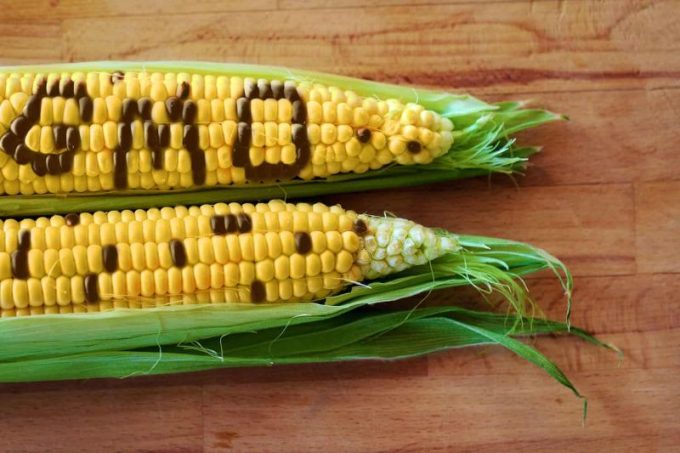Snail meat is super nutritious. Not only is the meat sweet (it tastes like fried gizzard dipped in butter, those who eat it say) it has a high demand in the high-end market. Rosemary Odinga is the only snail farmer in Kenya, according to Kenya Wildlife Service, which issues the license.
“I started this project as a hobby in 2007. I had gone to Nigeria where I had the privilege of visiting former Nigerian President Olusegun Obasanjo, one of the biggest snail farmers there. I felt very challenged,” says Rosemary, the eldest daughter of former Prime Minister Raila Odinga.
Back in Kenya, she started researching on snail farming.
“I visited the University of Nairobi and met one snail expert. I learnt everything from the types of snails, to their behaviours, ideal environment, feeding, breeding, market potential plus more. He saw my passion and volunteered to be my mentor.”
SEE ALSO: Former TV reporter turns into millionaire poultry farmer
Rosemary started off with 13 giant African land snails given to her by the mentor.
“All the snails died but two. I think they were exposed to heat, which is a no-no for them. Actually, snails thrive in cool temperatures and wet surfaces. That is why they multiply during the rainy season.”
So she constructed a greenhouse at her 25-acre farm in Kiserian and hosted the two surviving ones there. Within three months, they multiplied, I started donating to my friends who were foreigners.
“A French restaurant heard about my venture and placed orders. That is how the venture began to thrive,” says the mother of two.
She also brought on board three farmhands. Now she has 3,000 snails at various stages of their lives. Her farm, Shelltops Ltd, packs the slimy creatures in 160gram bags (24 pieces).
“The orders from high-end hotels became so overwhelming, I could not meet it. Because of the pressure, I decided to just focus on individual clients who comprise expatriates and Kenyans of foreign origin. But I also supply to a few upmarket restaurants,” she says.
Irresistible as snail farming may sound, Rosemary is quick to offer a disclaimer.
READ: Seven powerful changes you must make to succeed
“I know this thing may have all the dynamics of a quail project — zero capital, zero labour, an ever-ready market and quick profits! Far from it. There are several steps a farmer has to go through before they can be allowed to rear snails,” Rosemary shares.
Get the environment right
First, a farmer has to obtain a licence from Kenya Wildlife Service because the creatures are categorised as wild. You have to demonstrate that you have the knowledge and capacity to rear them. “To meet those stringent KWS standards, I used to work closely with my expert mentor. I am also in constant touch with Obasanjo. When he visits Kenya, he always passes by my farm.”
The next challenge for the farmer is getting a conducive place. There are different ways of rearing snails, including the free-range system, where the snails are placed in a shamba and using a closed structure like a greenhouse. The soil is sprinkled with water to keep it moist.
“You do not just get ordinary soil. There is a special one that I buy then ‘enrich’ it. Prior to commencing the project, the environment on which the snails develop remains ideal,” she adds.

Rosemary has equipped herself with information about snails.
“Snails are hermaphrodites, meaning they have both male and female sèxual organs,” she says. There are different types of snails such as Giant African Land Snail – Achatina Fulica; Garden Snail – Helix aspersa and Roman Snail – Helix pomatia. Each category has different species, for instance, under the Giant African Land snail, there is the Achatina Achatina from West Africa, Achatina Marginata from West Africa and Achatina Fulica from East Africa.
NEXT: 12 amazing business lessons we can all learn from sex
The species vary in body features like size, the shell and the general structure.
Rosemary specialises in Achatina Fulica from East Africa. The creatures feed on vitamins so their diet comprises kales, cabbages and fruits like pawpaw.
To ensure that the snails thrive and breed well, there are certain aspects that a farmer must get right.
“One is the temperature. Snails thrive in cool moist environs. They háte the sun. The soil type must also be right and contain the nutrients they need. That is why a farmer cannot just scoop soil from his farm, put in a basin and dump the snails. The soil has to be specially treated,” she explains.
To harvest, some farmers kìll them by placing them in boiled water or suffocate them.
“For us, we do not use ‘crude’ methods because our clients are sensitive and they would not eat the meat if they knew that the animal was treated like that. Let me just say we do it in a “special way’ which adheres to international standards,” she says. (Smart Harvest magazine, Standard)











I would like to hear more from experts in the hemp industry and especially on value addition chain of this plant.